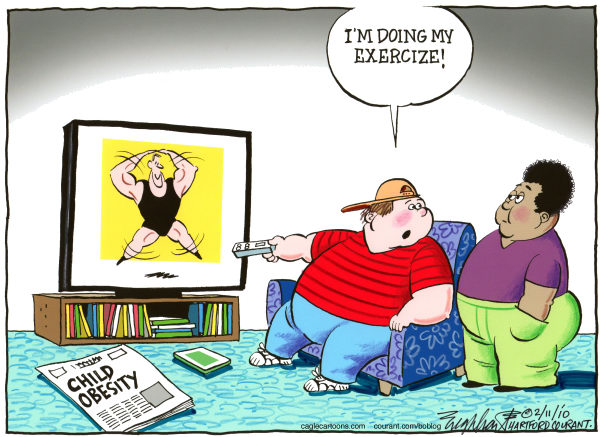Most of us always like watching either a television show or series while eating any one of our meals of the day. However entertaining and enjoyable this might be, it leads to obesity and other various health problems. Often, we don’t realize the time we spend watching television and usually we eat more than necessary just because we want to continue watching television or just squeeze in a few more minutes of our show time.
Pause and reflect the last time you were eating while watching something. Either on the television or on your laptop. Were you eating just to watch your show or eating because it was necessary? A recent study published in The American Journal of Clinical Nutrition found, that the more hours spent watching television, the more likely children were to be both fatter and less physically active.
Researchers have found a significant association between the number of hours of television watched per day and body fat mass, with every extra hour/day spent watching television associated with a 2.2 pound increase in body fat. The increased fatness was associated with factors such as, changes in eating patterns while watching television, which played a huge part in child obesity. The authors cited other studies which have demonstrated that children who watch more TV eat fewer fruits and vegetables, instead snack on high calorie foods.
The negative effects of television have been well documented, including violent behaviour, reduction in reading, decreases in physical activity, increased obesity, and negative impact both on total sleep time and sleep quality, to name just a few.
Children aged 2–14 spend an average of 2.4 hours a day in front of a TV screen or a computer monitor. Children are no longer interested in outdoor activities. Even young people spend a lot of time in front of their computers, playing games and browsing the Internet, but this does not involve physical effort; hence, there is no energy loss. As a result, more and more often there is the problem of overweight and obese children and adolescents, which persists into adulthood. Given that lifestyle and eating habits acquired at a young age translated into health in adulthood, making a healthy lifestyle a subject matter of interest of public health care institutions has become an important issue so that we can enjoy good health into old age. Even today people in their young adulthood, are juggling so many tasks at one time that often they do not get enough exercise and resort to watching a quick episode in between meals which leads to obesity.
Commercials and mass media have a significant effect on our eating habits. The amount of time spent in front of the television and the content watched can be a reason for developing obesity. Television not only contributes to physical inactivity but commercials and other programs also encourage us to eat more. TV viewing (TV mobile screen watching) is a contributing factor to childhood obesity. It takes away from the time children spend on physical activities and also leads to increased energy intake through snacking and eating meals in front of the TV. Those habits of “sit time” and “snacks”, and also advertisements on TV, influence children to make unhealthy food choices. Usually high-calorie meals and snacks of little nutritional value, low in protein, vitamins or minerals are consumed.
An easy way to get rid of this harsh phenomenon is to follow certain guidelines to make sure that children or adults do not over use the television. Try avoiding having a television in the room, this not only keeps the person watching it lazy and couched up in one spot but also propagates eating unhealthy snacking items while doing so. Limiting your usage and keeping a certain hours designated to watch the television can help beat obesity. Providing your child with healthy snacks, such as cut fruit and vegetables, instead of fatty or carbohydrate rich ones can cut down and help fight obesity. So next time you want to watch your favourite show, either do a few exercises on the spot while watching it or grab a fruit!
Authorship: Urja Mehta

